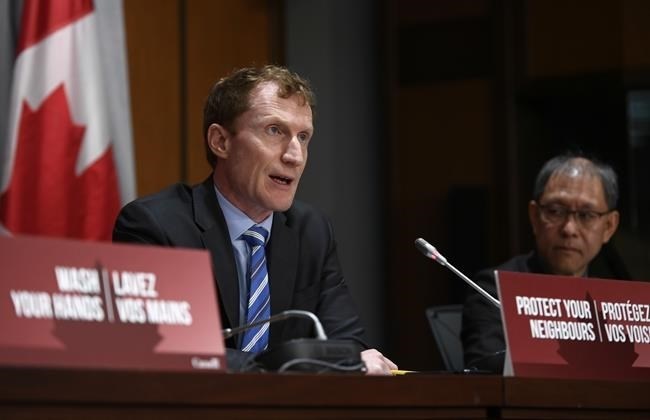
Minister of Indigenous Services Marc Miller speaks at a press conference on COVID-19 at West Block on Parliament Hill in Ottawa, on March 25, 2020. The chief of a First Nation in Ontario says her community is caught up in bureaucratic and "paternalistic" voting rules that could see her nation face a governance gap in the middle of the COVID-19 pandemic. Chief Valerie Richer of the Atikameksheng Anishnawbek First Nation says her community was moving forward with its upcoming chief and council elections before the coronavirus hit Canada and was waiting for Indigenous Services Minister Marc Miller to approve the community's new election process.
Image Credit: THE CANADIAN PRESS/Justin Tang
April 10, 2020 - 9:00 PM
OTTAWA - The federal minister of Indigenous services says that even though the number of COVID-19 cases on reserves remains low, no one should be complacent.
Marc Miller told reporters during a news conference on Friday that borders and checkpoints are good for identifying people with COVID-19 entering a community, as well as making people aware of the disease, but they can lead people to believe that they are safe.
He says the remoteness of many Indigenous communities as well as aggressive measures taken by their leadership has helped keep out the coronavirus, but that the communities could be more adversely affected due to longstanding social economic inequities.
As of Thursday, there were 40 cases of confirmed COVID-19 in First Nation communities on reserves, and five cases in Nunavut.
Dr. Tom Wong, chief medical officer of public health, told the news conference it's very important to keep COVID-19 off reserves, and to encircle cases that are identified with contact tracing.
Wong also put out a call for nurses to step forward to serve in the North, acknowledging concerns that shortages of health professionals in remote areas has led to them flying from community to community, potentially spreading the disease.
News from © The Canadian Press, 2020